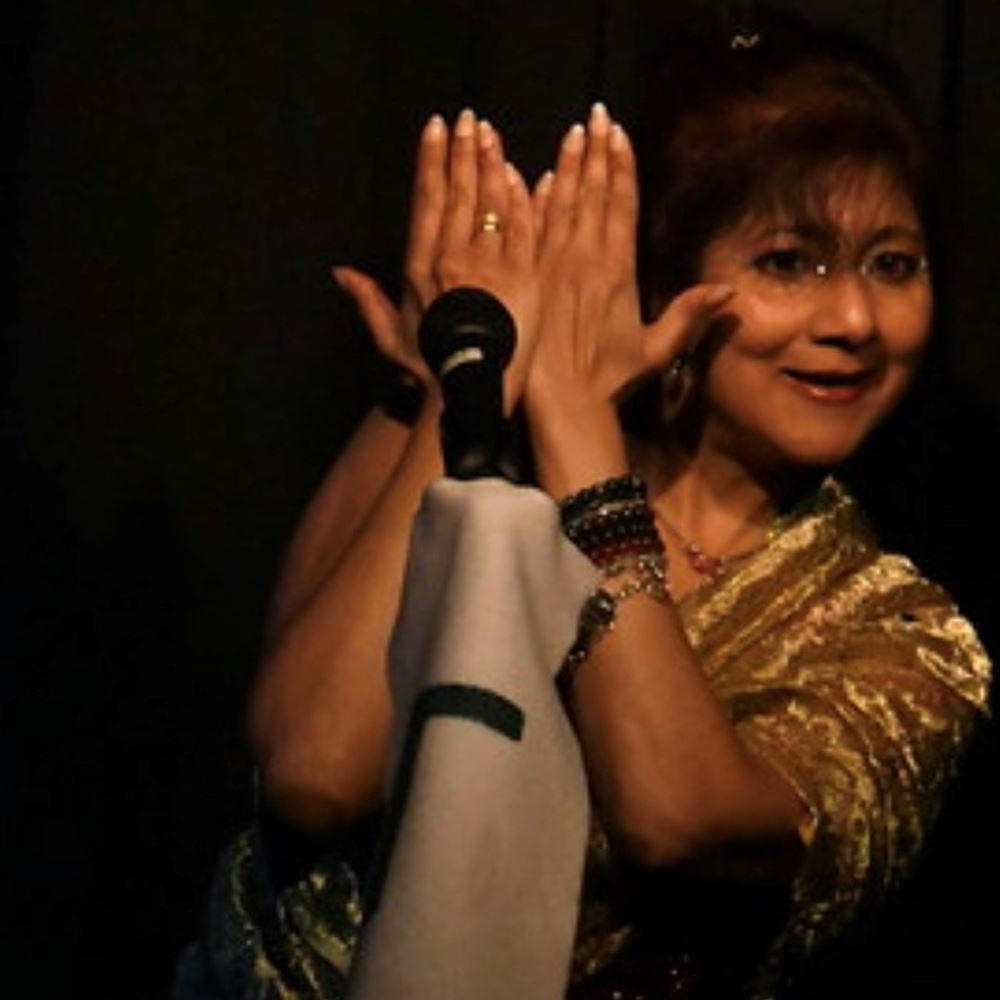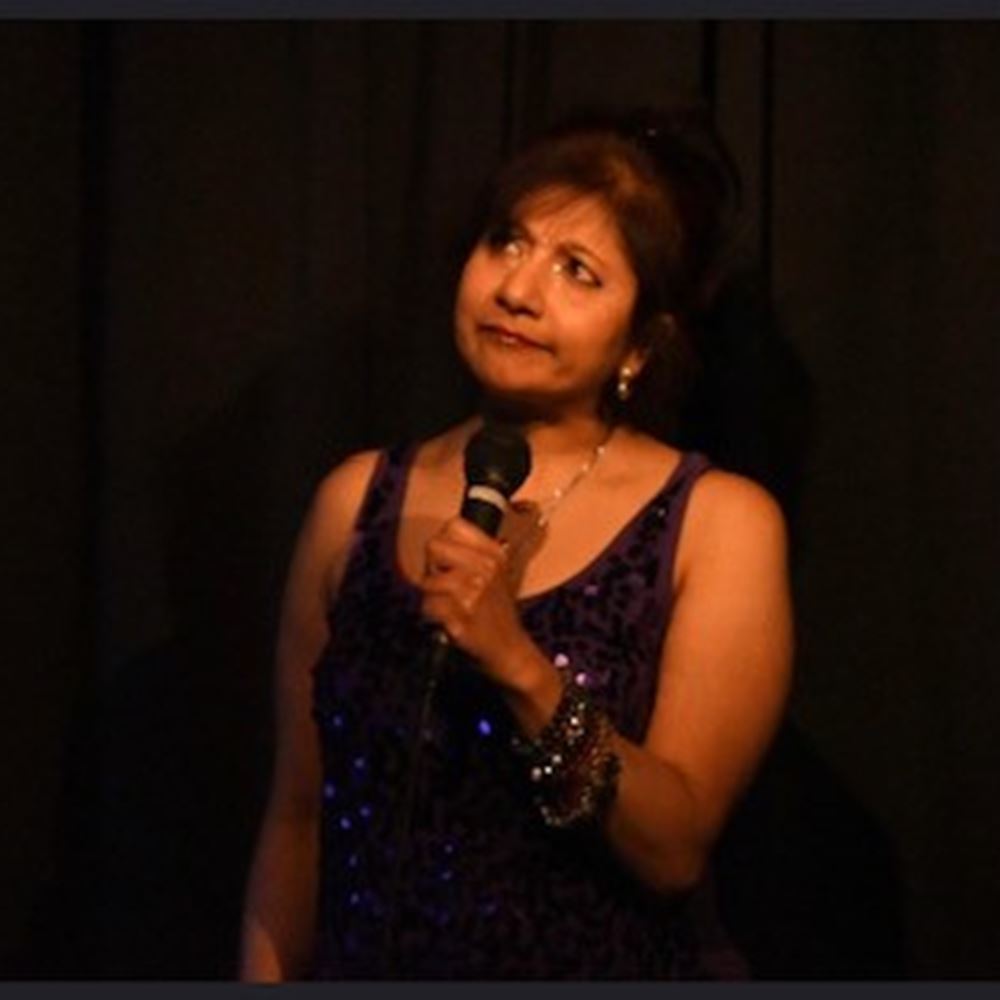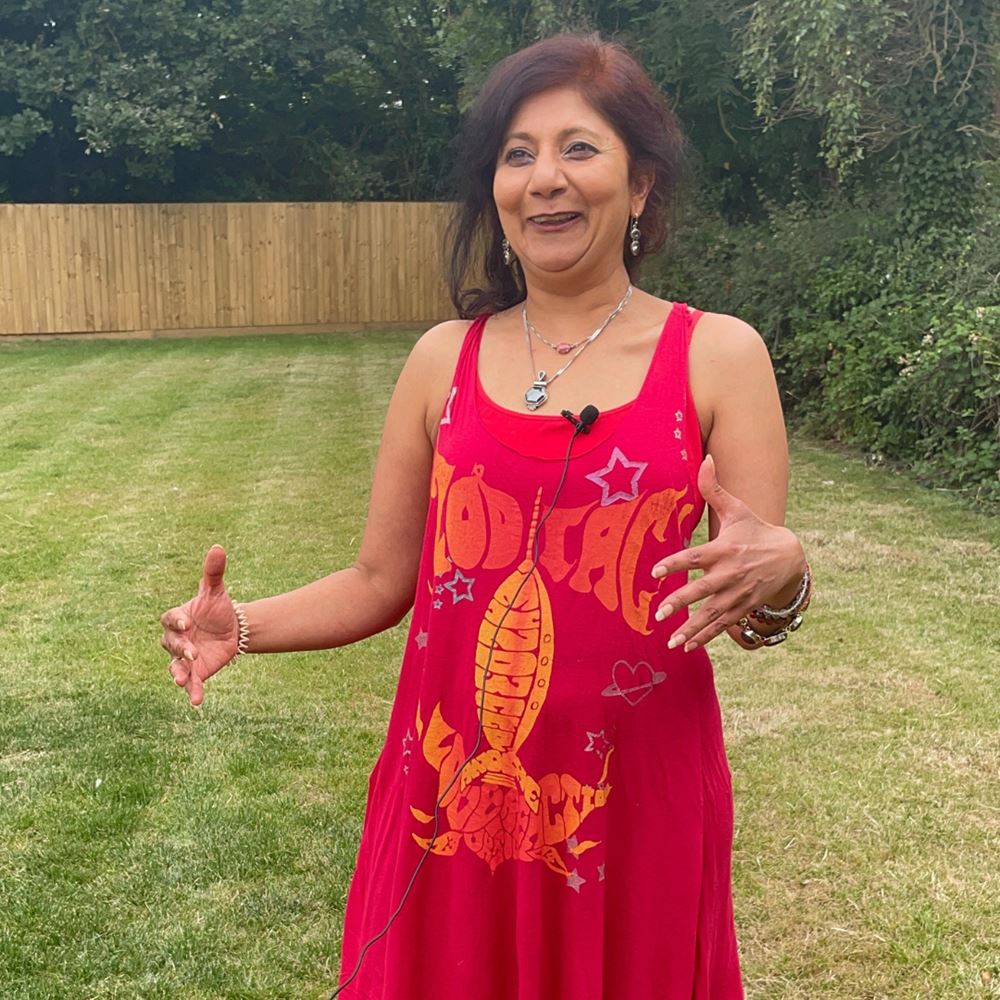
Friday, 28 October
International
To mark Black History Month 2022, Live & Local has chatted to Ishi Khan about how her personal journey influences her artistic practice and what Black History Month means to her.
Internationally acclaimed, multi-award nominee comedian, Ishi Khan is based in Leicestershire. A performing artist/writer/ theatre maker/ event producer, MC and tree climber are some of her many hats. Her work is inspired by emotive responses to current affairs. It is modern-contemporary juxtaposed with traditional storytelling. She uses humour to connect & engage diverse communities, encourage dialogue and expression.

Hi Ishi. You say that your show Ishi Khan: I’m Migrant explores belonging by drawing on personal experience as a Zambian migrant with Indian ancestry in Brexit Britain - could you tell us a little bit about your personal journey?
It gives me a perspective from different cultures of navigating the world, I think one of the ways this comes through in the I’m migrant show for instance is when audiences come out of the show going "Oh, we experience that too” because there are certain bits when I talk about Catholicism and Islam and it’s the first time they actually realise the similarities between the two religions or when I talk about my grandma and people come out and they go “Oh yes, that’s like my grandma”. I think it helps people connect better than they have done perhaps in the past. Here’s the thing: I think division and prejudice in society happens through ignorance and it really comes about because it’s a lot easier to hate a group of people but when we meet an individual from that group and we make connections it’s a lot harder because we start to recognise that we actually quite like that person.
What does Black History Month mean to you?
Growing up in Zambia I got this African part of me that for many years - and it’s only until recently, until lockdown - that I wanted to keep hidden because of Africa’s stereotype in the West: famine, decease, poverty, receiving Nigerian emails asking for money, theft, corruption, you name it . . .
For me, Black History Month is very important, and while I think it’s great that there’s a month, I also feel like it should be more than that. For me it connects with the history of Africa. There are so many elements that people are not aware of, also because they have been kept hidden: for instance, Shaka Zulu being one of the biggest warriors the planet has known and the threat he posed to the British Empire. The way he organised his army (see bull horn formation) is still used today in Western armies. We grew up in school learning about Shaka Zulu as this mighty warrior but when I came to the UK and I mentioned him in comedy improv class I realised people don’t know him.
Can you imagine if more kids learned that at school? They would grow up with a pride about their African heritage instead of what I had to do which is hide them in order to fit in.
The pandemic led to a global polarisation of opinions on the vaccine, people feeling excluded for being part of one side or the other. I think there’s an opportunity now to be more compassionate and empathise with a lot of the communities or parts of society that have been experiencing exclusion for a much longer time already for other reasons. For a lot of us, hiding an aspect of our own identity has been part of our lives.
What would you like to tell your younger self?
The journey I’ve been on has moulded who I am and I think that was good and I wouldn’t want to miss anything.

What changes, if any, in the cultural sector would you like to see happening to support greater diversity?
The first step is always to recognise that there is an inequality and being aware of it. Since the pandemic, I feel that there is a big shift in understanding that and luckily things are starting to shift in the right direction now. But not long ago in the cultural sector, doors were not always open and some positions and spaces were and still sometimes are not accessible. What we need a more neutral spaces for artists. Comedy often takes place in pubs for example. For a Muslim community or even females, this is not a neutral space. This is something I’ve enjoyed and appreciated at the Live & Local Developing Artists in Rural Touring Scheme: the chosen space*was very much a neutral and open one.
I also think representation matters a lot, thinking of the new film version of Disney’s Little Mermaid and how outraged so many people were in their reaction. But through this so many little girls are going to feel represented. It’s really important that every colour, shape and size of body is being represented in everyday life
*Whittington Community Hall, read the summary of the day here: DART Day 12.07.2022 – BLOG
Live & Local thanks Ishi Khan for the interview. You can find out more about celebrating Black History Month here.

You've been added to the mailing list.